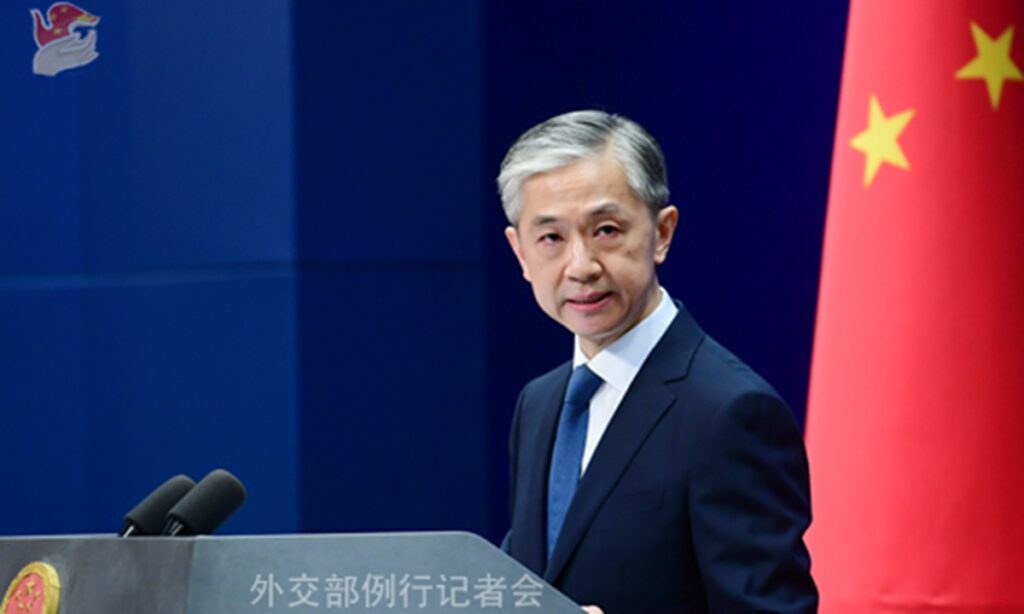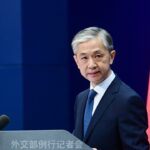China’s Ministry of Foreign Affairs said that China is considering not recognizing British National (Overseas) passports as a viable travel document after the UK released more information on the new Hong Kong BNO visa that allows their holders to move to the country for residency.
The act would mean that people holding BNO passports could not visit the Chinese mainland.
Foreign Ministry spokesperson Wang Wenbin said at a press conference on Thursday that China firmly opposes the UK’s move with regard to Hong Kong’s issues and is considering not recognizing the BNO passport as a viable travel document.
The Hong Kong Special Administrative Region (HKSAR) government also issued a statement on Thursday expressing its dissatisfaction and opposition to the UK move on the BNO passport, and urged the UK to stop interfering in Hong Kong’s affairs.
These remarks came after the UK on Wednesday released more information on the new Hong Kong BNO Visa, which will create a bespoke immigration route to enable Hong Kong residents holding the BNO and their immediate family members to move to the UK to work and study, the UK government said on its official website.
The Hong Kong BNO Visa route will open from January 2021, said the UK government.
Fan Peng, a member of the Chinese Association of Hong Kong and Macao Studies, told the Global Times on Thursday that if the UK insists in implementing the new policy, China could further ban BNO holders from traveling to China, including the Hong Kong Special Administrative Region (HKSAR). In other words, if Hong Kong residents choose to hold the BNO passport, they have to abandon the HKSAR passport, Fan said, noting that would be a tough choice for Hong Kong residents.
The Chinese Embassy in the UK gas also commented on the issue.
The spokesperson of the embassy said, “In an MOU exchanged between China and the UK, the UK has explicitly pledged that BNO passport holders who are Chinese citizens residing in Hong Kong shall not have the right of abode in the UK.”
However, the UK has now, in total disregard of the strong opposition and repeated representations of the Chinese side, which seriously goes against its own promises, interfered in China’s internal affairs, and violated international law and the basic norms governing international relations.
“The Chinese side expresses its grave concern and strong opposition, and will certainly take effective countermeasures,” said the embassy spokesperson.
The spokesperson noted that the Chinese side urges the UK side to recognize the fact that Hong Kong is part of China, have a right and objective understanding on the national security law for Hong Kong Special Administrative Region, immediately correct its mistakes and stop interfering in Hong Kong affairs, which are China’s internal affairs, in any form. Such interference will be self-defeating, said the embassy.
Echoing the embassy’s comment, Fan said the UK has close economic bonds with China, and its recent politically driven provocations, including the BNO policy and Huawei ban, will harm the country’s interests.
The UK is determined to follow the footsteps of the US, even at the cost of China-UK relations, Fan said.
If the situation escalates, China has many options as countermeasures. China is the UK’s third largest export destination after the US and Germany, and UK brands such as HSBC and Jaguar Land Rover are familiar to the Chinese public. Sinking relations will also impact Chinese students’ willingness to study in the UK, analysts said.
The UK, together with Australia and Canada in the Five Eyes intelligence alliance, has conducted a series of concerted maneuvers of blatant interference in China’s domestic affairs following the US, Fan noted.
Wang Wenbin, spokesperson of Chinese Ministry of Foreign Affairs, holds a routine press conference.



